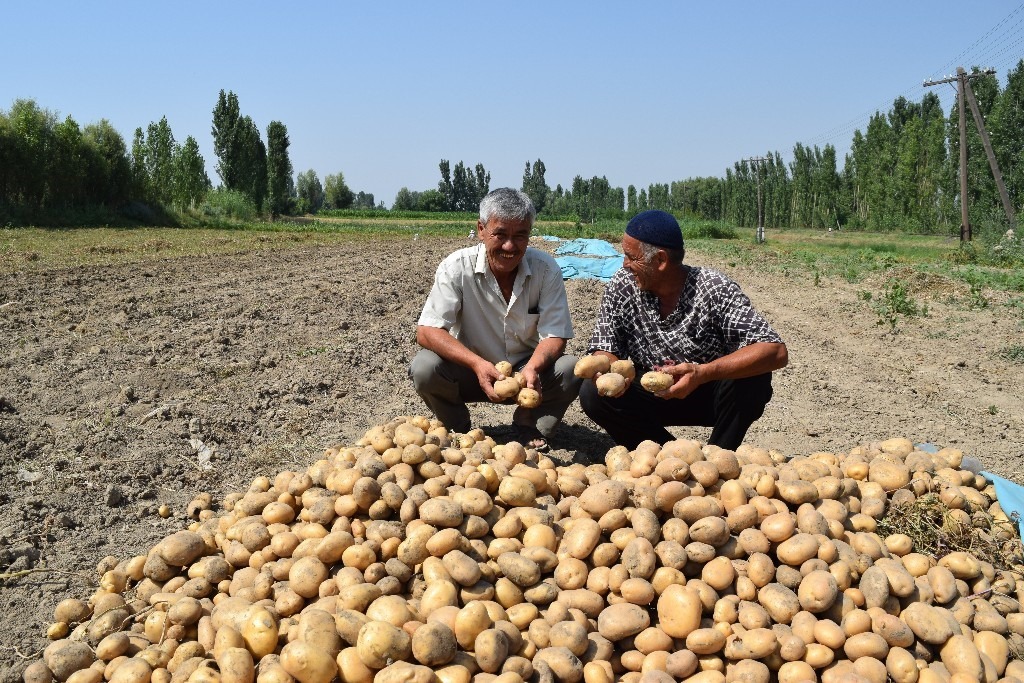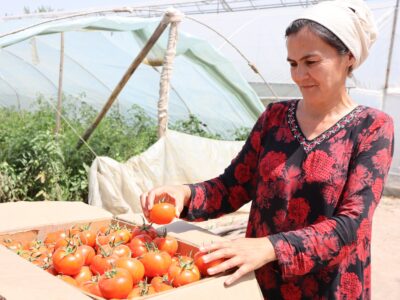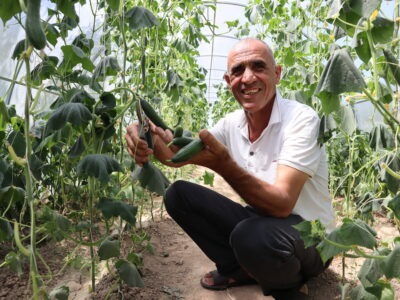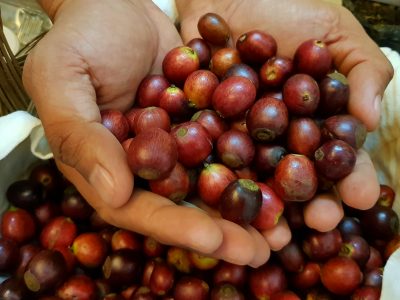
New Seeds, Early Varieties, and Technical Assistance Bring Success
ACDI/VOCA’s USAID-funded Agro Horizon Project contributes to the growth of Kyrgyzstan’s agriculture sector to improve the country’s food security. It increases the productivity and competitiveness of agricultural producers and agro enterprises in the livestock, fruit, and vegetable value chains. The four-year project strives to increase the incomes of smallholder farmers and improve rural households’ nutrition. The project also works to empower women and provide greater opportunities for youth.
One of the project’s recent successes involves the 217 members of the Aravan Agro Service (AAS) cooperative of southern Kyrgyzstan, which as of May 2016, had earned a profit of 3.5 million Kyrgyz Soms (KGS) compared to 2015’s loss of 4.2 million KGS. Agro Horizon supported the cooperative as it grew early potato varieties. The project also provided marketing and production assistance.
Off-Peak Potato Production and Improved Sorting, Packing Boost Profits
Previously, farmers did not profit from potato production because of low productivity, inability to hedge market price risks, and lack of direct links with institutional buyers. This year, with project support, the majority of cooperative farmers shifted to early-potato production. The project provided technical assistance and established a revolving potato seed fund through which farmers received high-yielding, disease-free seeds.
Cooperative members increased yields from 10 to 25 tons per hectare. Project-provided marketing and sales support resulted in sales of 600 tons of early potatoes to large retail chains. Farmers sold their potatoes at higher prices because early potatoes are produced in the off-peak season when supply is not abundant. The cooperative also helped sort, grade, and properly pack the potatoes.
With Profits, Coop Members Pay for Daughter’s Marriage, Invest in Next Year’s Seeds
Coop farmer member Temirov Abdulhamid says that “With Agro Horizon support, I planted 1,590 kg of Riviera and Impala early potato varieties on 57 acres. I harvested 10.3 tons and sold 8.6 tons of first-grade potato for 17,500 KGS/ton and 1.7 tons of second-grade potato for 7,500 KGS/ton, totaling 163,250 KGS, thus my gross-margin is 115,550 KGS. This amount will be enough not only to pay for my daughter’s wedding, but also to buy two cattle, four sheep, and quality potato seeds and fertilizers for next year.”
In 2015, oversupply of late potatoes led to an abrupt fall in prices. By early June 2016, cooperative members delivered 430 tons of early potato for about 19,000 KGS per ton, a 200 percent increase from 2015 price. The farmers achieved margins of almost 50 percent through off-season production; improved varieties and better seed; and value addition through sorting, grading, and packaging. They also signed advance purchase agreements, which reduced the risk of losses due to price drops.
AAS coop member Tajibaev Abduhalil attests that “After attending trainings on agricultural technologies and having regular consultations with project specialists, I harvested 3.87 tons of first grade early potato and sold them for 18 KGS per kilo. My total sales were 77,100 KGS, with a gross profit of 56,100 KGS. I am a good example that investing in high quality seeds leads to market success.”






